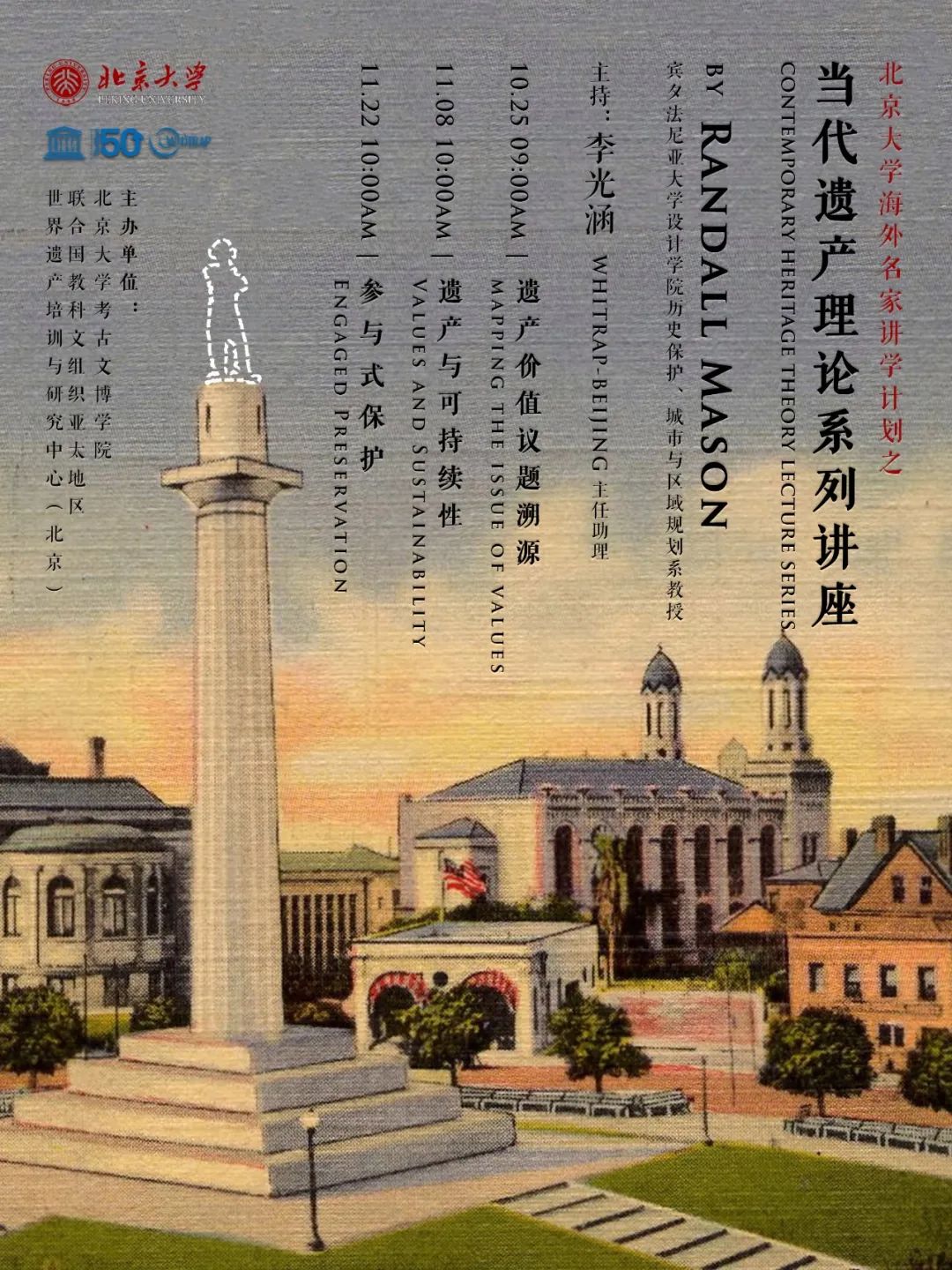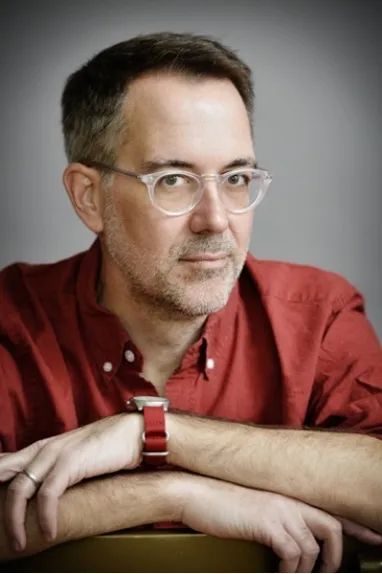Speaker: Prof. Randall F. Mason, the Graduate Program in Historic Preservation City & Regional Planning, University of Pennsylvania
Time
1 Mapping the Issue of Values: 9:00 am, October 25, 2022, GMT+8
2 Values and Sustainability: 10:00 am, November 8, 2022, GMT+8
3 Engaged Preservation: 10:00 am, November 22, 2022, GMT+8
Venue: folloing the update in
WHITRAP-BEIJING
Biopgraphy:
Randall Mason teaches in the Graduate Program in Historic Preservation and is a professor in the Department of City & Regional Planning at University of Pennsylvania. His research interests include history and theory of preservation, preservation planning, the economics of preservation, historic site management, and the history and design of memorials. He served as Program Chair from 2009-2017 and Executive Director of PennPraxis from 2014-2017.
Before joining the University of Pennsylvania in 2004, Mason worked as Senior Project Specialist at the Getty Conservation Institute, researching economic and social issues related to heritage conservation. His previous positions included Assistant Professor and Director of Historic Preservation at the University of Maryland, and adjunct faculty in landscape architecture at RISD. He had years of professional experience in consulting practice and co-founding the nonprofit research group Minerva Partners.
His publications include several books: The Once and Future New York: Historic Preservation and the Modern City (University of Minnesota Press, 2009, winner of SAH’s Antoinette Forrester Downing award); Giving Preservation a History: Histories of Historic Preservation in the United States (edited with Max Page; Routledge, second edition, 2019); Values in Heritage Management (edited with Erica Avrami, Susan Macdonald, and David Myers; Getty Publications, 2019).
Abstract:
1 Mapping the Issue of Values
Values have long underpinned concepts of heritage and its conservation within the built environment. The last half century bore witness to a critical period of political and social influence that shaped the field’s institutional and professional development, and has broadened the understanding of how multiple publics may ascribe different values to heritage. An analysis of evolving trends and emerging issues suggests that the contemporary field is characterized by two distinct, complementary perspectives: one centered on heritage values (associated with the curatorial, materialist traditions of conservation practice) and the other on societal values (focused on the economic, political, social, and environmental uses of heritage). Integrating these different yet interdependent views can advance learning and self-critique within the professional field and inspire more sustainable and inclusive practices of conservation.
2 Values and Sustainability
Values are a key locus for sustaining heritage, as they are ascribed and evolve over time, connect inherited fabric and experiences thereof to contemporary society. Featuring a set of discernment and decision-making practices, the values-centered conservation (VCC)framework helps build a conception of conservation that is equally rooted in an understanding of dynamic, contemporary society and in the history and materiality of inherited built environments. As heritage becomes more deeply implicated with other civil society issues, VCC would surely sustain heritage by continuing to adapt decision-making to new power relationships.
3 Engaged Preservation
Preservation is a profession that constantly and intimately engage with society’s empirical issues and opportunities. Driven by taking on the challenges of contemporary society, engaged preservation embraces the dual lives of preservation as social processes and material fabric, as well as the dual capacities of the historic built environment as an archive for traditional curating and an agent for social change. Dealing with material and social imperatives holistically, the measure of engaged preservation successfully advances community development and building performance and cultural relevance, while at the same time weave historic places and narratives back into the fabric of communities and regions.
Source: WHITRAP-BEIJING

